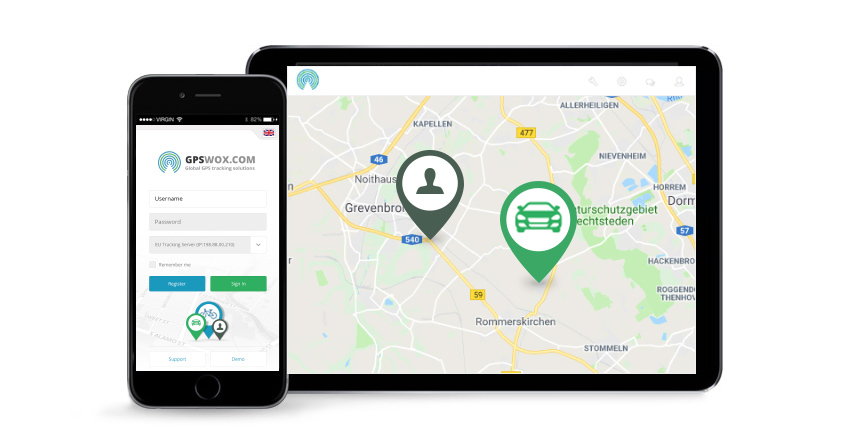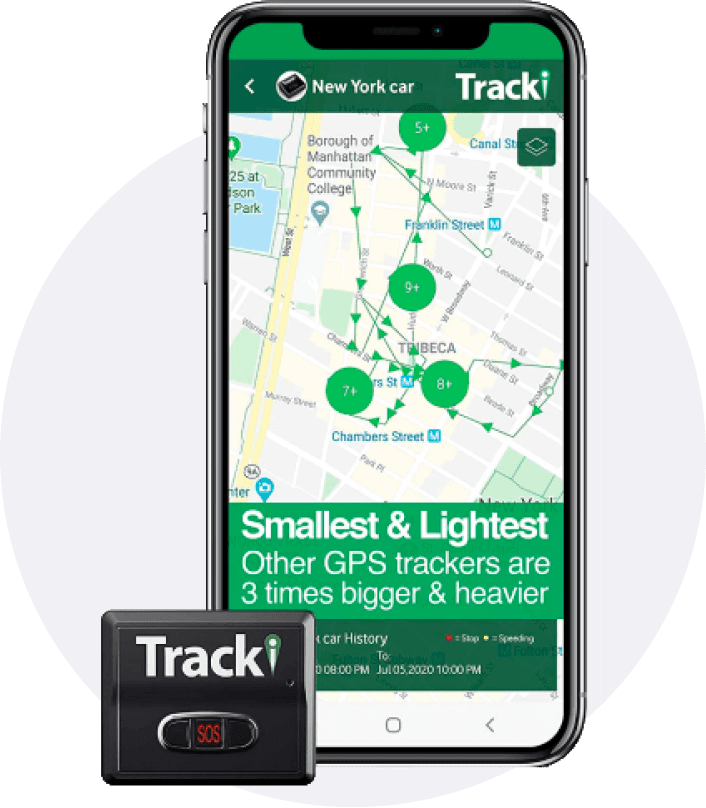Just How GPS Tracking Can Enhance Your Company Operations
Just How GPS Tracking Can Enhance Your Company Operations
Blog Article
Browsing the Future of GPS Monitoring: Technologies, Obstacles, and Opportunities Ahead
As we stand at the crossroads of societal ramifications and technical advancements, the landscape of GPS monitoring is poised for a transformative trip in advance. The evolution of GPS technology has been fast, introducing a new age of real-time tracking capabilities that promise extraordinary degrees of accuracy and effectiveness. With excellent technology comes terrific responsibility, as information personal privacy worries impend huge and safety challenges in General practitioner tracking raising significant inquiries concerning securing sensitive information. Among these difficulties lie hidden possibilities waiting to be checked out, offering a peek right into the untapped potential of an industry at the edge of change.
Evolution of GPS Modern Technology
Created for military purposes, General practitioner technology has evolved to come to be a common tool in numerous sectors, including transport, logistics, agriculture, and personal navigating. Early GPS systems were defined by minimal protection, lower precision, and bulkier equipment requirements.
One key landmark in the advancement of GPS technology was the development of Careful Availability (SA) in the 1990s, which purposefully broke down the precision of private General practitioner signals. As GPS technology continues to advance, we can anticipate more enhancements in efficiency, precision, and protection, opening up new possibilities for technology and applications throughout numerous markets.
Real-Time Monitoring Advancements
Building on the innovations in GPS technology that have reinvented precision and protection, real-time monitoring has become an essential area of technology with profound ramifications across different fields. Real-time tracking innovations make it possible for organizations and organizations to monitor personnel, vehicles, and possessions instantaneously, supplying useful insights for decision-making procedures - gps tracking. By leveraging real-time information, companies can boost functional efficiency, improve client service, and guarantee the security and safety and security of their possessions
One of the essential improvements in real-time monitoring is the combination of expert system and equipment understanding algorithms, which make it possible for predictive analytics and anomaly detection. These abilities enable positive maintenance organizing, course optimization, and threat mitigation techniques. Additionally, the advancement of real-time radar has actually brought about the growth of mobile applications and customizable dashboards, equipping users to access vital information anytime, anywhere.
Information Personal Privacy Issues

Data privacy issues include different aspects, including the storage, sharing, and retention of location information. Companies need to carry out robust safety steps to secure GPS tracking data from cyber risks and information violations. Clear plans concerning information collection methods and the function of tracking are necessary to construct trust fund with consumers and guarantee compliance with data defense laws.
Safety And Security Challenges in GPS Tracking
Resolving data personal privacy worries in GPS tracking is intricately connected to reducing the security challenges that arise from possible vulnerabilities in the modern technology. Among the primary protection challenges in GPS monitoring is the threat of unapproved access to sensitive area data - gps tracking. Cyberpunks could intercept general practitioner signals, adjust place information, and even track people without their approval. This not only gets into individual privacy but additionally poses severe safety risks.

Another safety obstacle is the potential for spoofing or jamming GPS signals. By interfering or relaying false signals with legit ones, destructive stars can deceive GPS receivers and control location data. This presents dangers not just for specific customers but also for governmental and armed forces applications that depend on precise positioning info. Implementing robust security, authentication measures, and signal verification methods are essential steps in attending to these safety and security challenges in GPS tracking.
Arising Opportunities in the Market
The burgeoning field of GPS monitoring innovation presents a myriad of appealing possibilities for sector growth and innovation. One vital opportunity hinges on the development of GPS monitoring applications beyond traditional sectors. Industries such as logistics, transport, and fleet management have actually been early adopters of general practitioner technology. Nonetheless, emerging possibilities are now developing in areas like healthcare, agriculture, and environmental monitoring. As an example, general practitioner tracking can change person treatment by enabling remote tracking of important indicators and ensuring timely medical help. In farming, GPS innovation can check my site enhance crop monitoring practices and enhance total return. Environmental surveillance can benefit from GPS tracking by making it possible for real-time information collection for climate study and conservation efforts.
An additional considerable possibility in the GPS browse around this site tracking market is the assimilation of advanced analytics and expert system. By leveraging these modern technologies, businesses can acquire beneficial understandings from GPS information to enhance functional performance, enhance decision-making procedures, and deal personalized solutions to customers. Furthermore, the enhancing demand for linked tools and IoT solutions presents a ripe chance for GPS tracking companies to broaden their offerings and create ingenious remedies that deal with a more connected globe. By capitalizing on these emerging opportunities, general practitioner monitoring business can position themselves for sustained development and success in the vibrant landscape of the market.
Final Thought
In final thought, the future of GPS tracking is noted by constant evolution and development in technology. As the industry moves forward, navigating these challenges will certainly be vital to guarantee the continued development and success of GPS monitoring modern technology.
With wonderful development comes great duty, as information privacy worries impend big and safety obstacles in GPS monitoring raise relevant inquiries about guarding delicate information.With the fast spreading of General practitioner tracking technology in various sectors, Full Article attending to data privacy problems has actually ended up being a vital vital for both companies and customers alike. The collection of area data via GPS monitoring elevates significant personal privacy issues, as it allows the tracking of people' motions and behaviors. Services using General practitioner tracking need to focus on securing this data to avoid unapproved access or misuse that could jeopardize individuals' privacy rights.
Companies should execute robust safety steps to safeguard GPS monitoring information from cyber dangers and information breaches.
Report this page